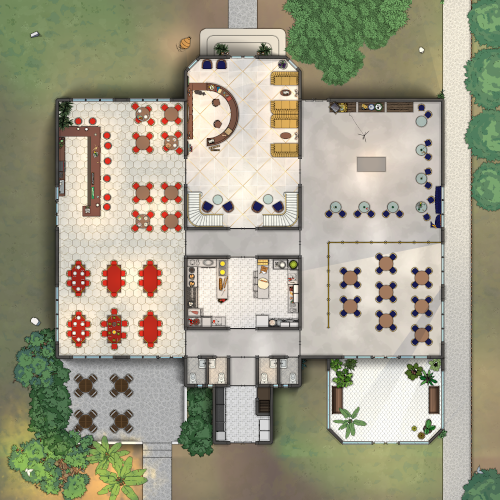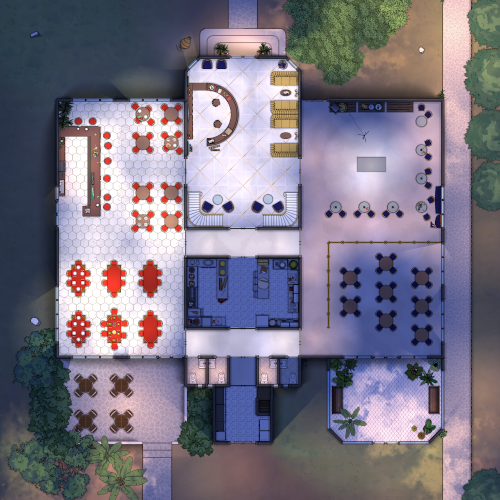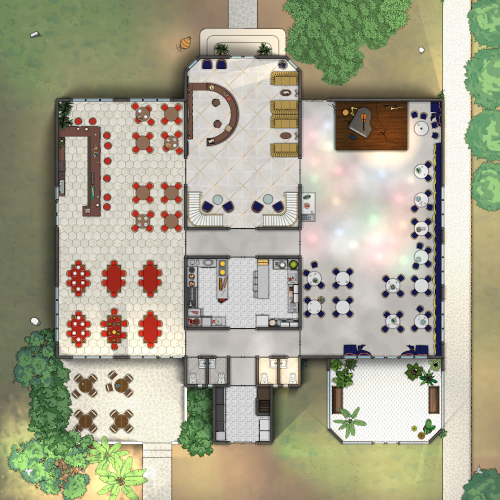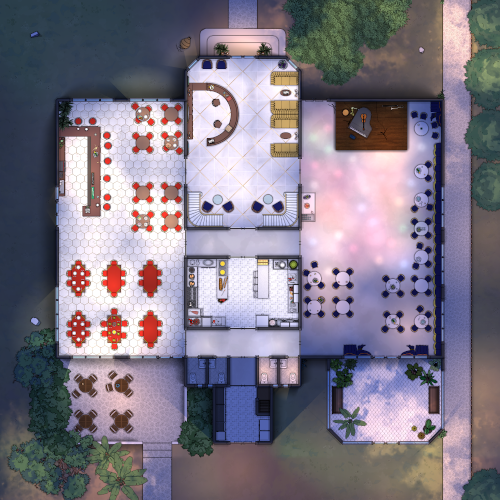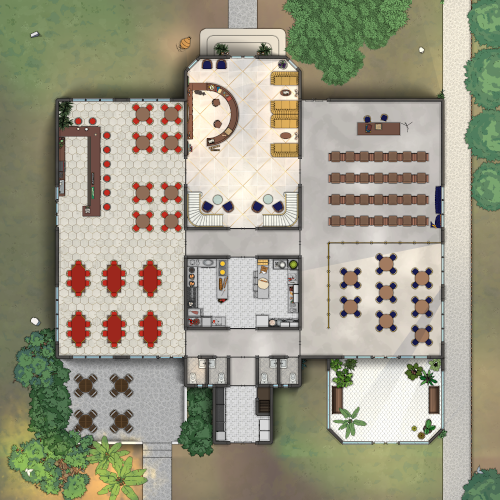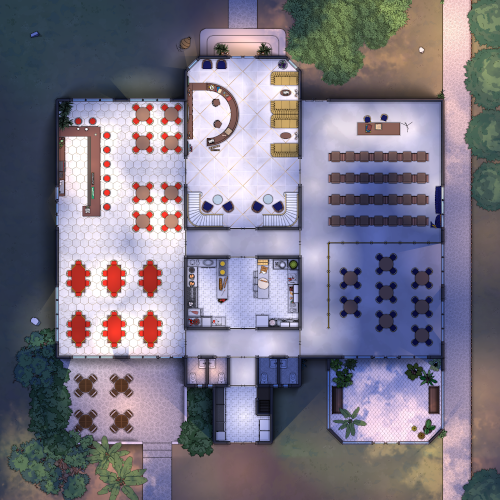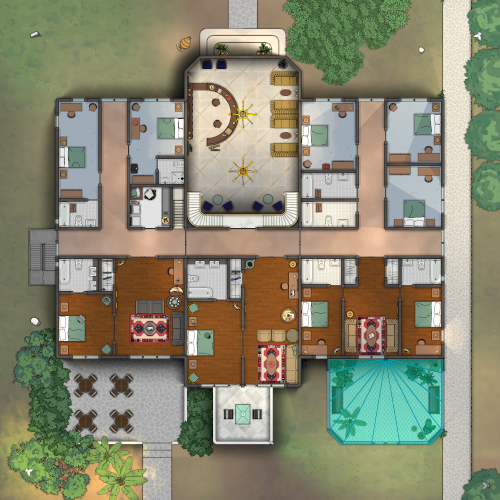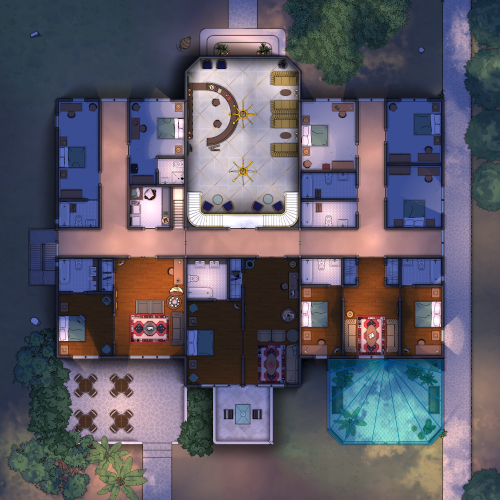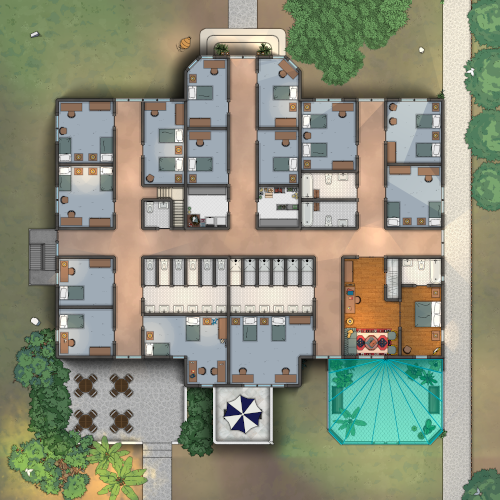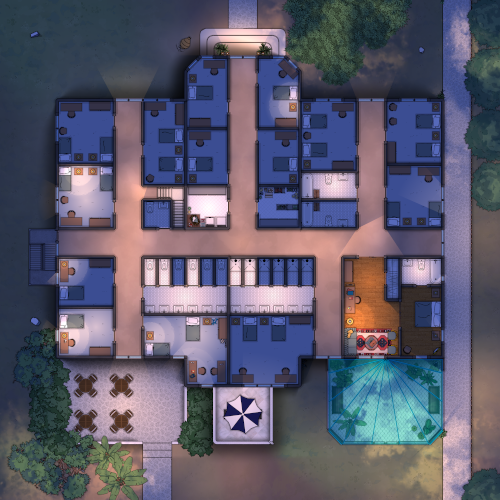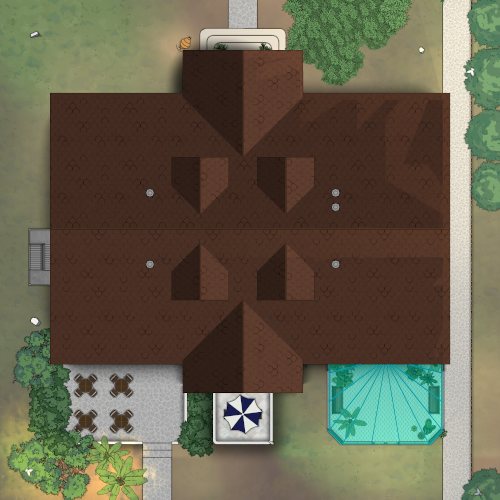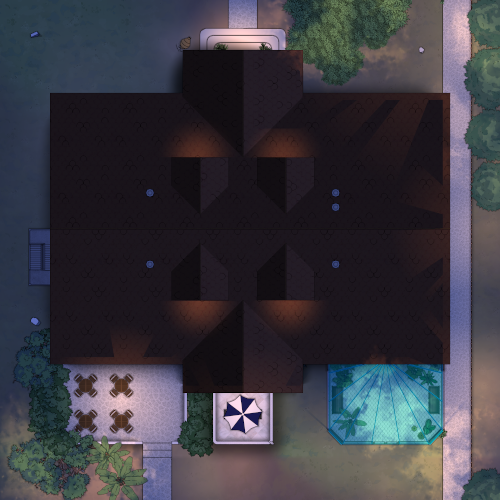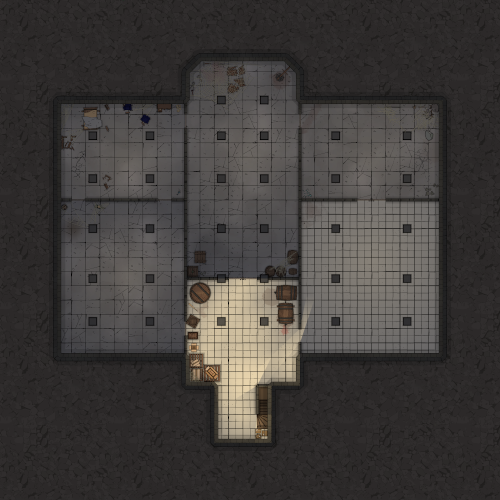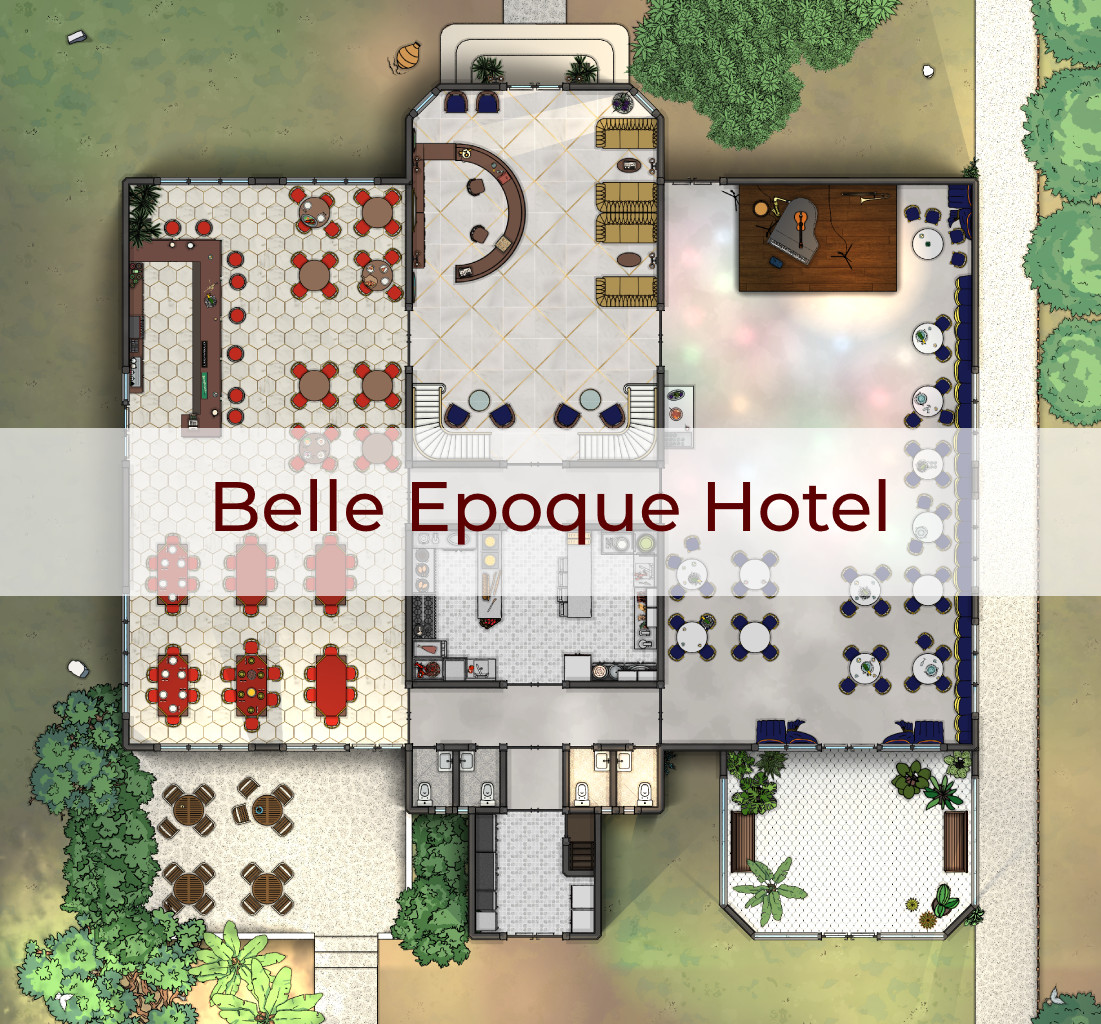Why do the room numbers keep changing? What causes the elevator to stop at non-existent floors? How do the shadows dance in the ballroom? Why do the guests all check out at 3 AM? What secrets lie in the sealed suite?
Follow Cthulhu Architect on BlueSky!I went to the Hotel of the Violet Hippopotamus and drank five glasses of good wine.
Anton Chekhov, The Prank: The Best of Young Chekhov
The Belle Époque Hotel had been accepting guests for longer than anyone could remember, though the brass nameplate by the door bore no dates, and the guest registry’s earliest entries were written in a script that predated the building’s supposed construction.
Marcus arrived on a rain-soaked evening, drawn by an advertisement he couldn’t quite recall seeing. The lobby’s crystal chandeliers cast dancing shadows across burgundy wallpaper that seemed to shift when viewed peripherally. Behind the mahogany front desk, the clerk’s smile was too wide, his eyes too bright in the gaslight’s amber glow.
“Room 237 is ready for you,” the clerk said before Marcus could speak. “Your usual suite.”
Marcus had never been here before, yet something about the ornate key felt familiar in his palm. The elevator’s brass gate clanged shut with funeral finality.
His room overlooked a courtyard that shouldn’t exist—the hotel occupied a corner lot, surrounded by busy streets. Yet below, gas lamps illuminated a garden where figures in period dress wandered eternal paths. A woman in a white gown turned to wave at his window, her face a blur of longing and decay.
The bathroom mirror reflected not his face, but that of a man in formal evening wear, mouth open in a soundless scream. When Marcus spun around, the reflection remained, reaching toward him from the glass.
He tried to leave, but the hallway stretched infinitely in both directions, lined with doors bearing numbers that changed when he wasn’t looking directly at them. Other guests passed by—some in modern clothing, others in Victorian dress, a few in styles that belonged to no earthly era. None acknowledged him; none cast shadows.
In the lobby, he found the guest book open to his signature, written in his own hand but in ink that looked decades old. Above it, entry after entry: his name, repeated endlessly, checking in on the same date across impossible years.
The clerk’s smile never wavered. “Checkout time is never, Mr. Hartwell. It never was.”
The hotel’s true horror wasn’t its ghosts or shifting architecture—it was the gradual understanding that he had been coming here for decades, perhaps centuries, each visit forgotten until the next arrival. The Belle Époque didn’t trap guests; it revealed a truth they had always been too afraid to remember.
Outside, rain continued to fall on empty streets, washing away the last traces of a world that had moved on without him long ago.
